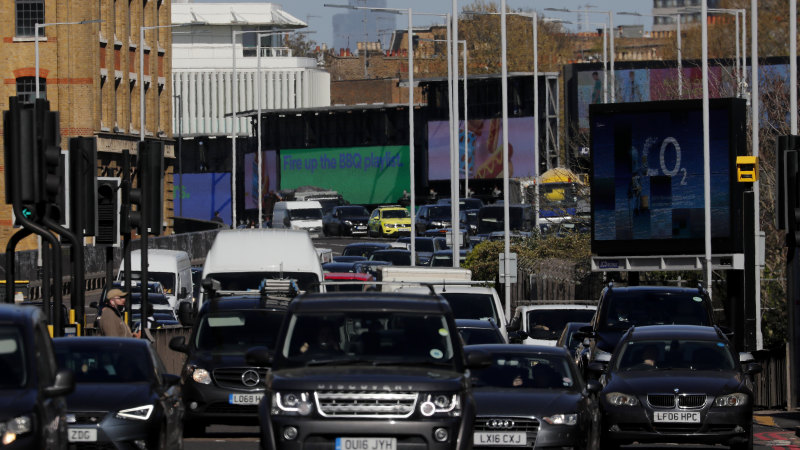Save articles for later
Add articles to your saved list and come back to them any time.
London: A lab in England is attempting to make synthetic fuel that could replace petrol amid a race to prepare for Britain’s net-zero ban on fossil fuels.
The carbon-neutral alternative to petrol can be used in existing cars, although it will be more expensive.Credit: AP
Former Formula 1 engineer Paddy Lowe is scrambling to start production of so-called e-fuel, which uses green electricity and carbon dioxide from the atmosphere to make a carbon-neutral alternative to petrol, with his company Zero expected to begin making it in autumn.
Zero’s test lab in Bicester, Oxfordshire, will make up to 30 litres of the fuel per day and the company intends to test it for use in existing engines.
The fuel is seen as attractive as it can be used in existing cars, passenger jets and warplanes.
However, it will be more expensive to make than hydrogen or electric power, meaning the first customers are likely to be wealthy owners of high-performance vehicles.
The European Union’s decision to allow German and Italian carmakers to carry on making combustion engines after 2035 has raised hopes that sports cars could be saved from the net-zero scrap heap.
European manufacturers will still be allowed to manufacture cars that use e-fuels, which are a greener alternative to petrol and diesel. The decision has raised hopes that Britain might follow suit.
The process is convoluted, meaning it will probably always be more expensive to produce synthetic petrol than to use green electricity to charge a battery in an electric car.
Zero will also open an office in California as part of a plan to expand global production.
It comes as British car production begins to recover. Output from British car plants rose 6 per cent in the first three months of the year, helped out by a gradually returning supply of parts.
However, production still stood at just 788,000 cars in the last 12 months, far below the pre-pandemic, pre-Brexit level of more than 1.7 million vehicles a year.
Richard Peberdy, UK head of automotive, KPMG, said: “Whilst it’s good news that production levels are again increasing, big questions still remain unanswered about how the UK will produce electric vehicles at much larger scale and what the nation’s strategy is to ensure that its car industry can compete with countries who have already developed bold policy moves to encourage inward investment in next-generation manufacturing facilities.”
Get a note directly from our foreign correspondents on what’s making headlines around the world. Sign up for the weekly What in the World newsletter here.
The Telegraph, London
Most Viewed in World
From our partners
Source: Read Full Article


